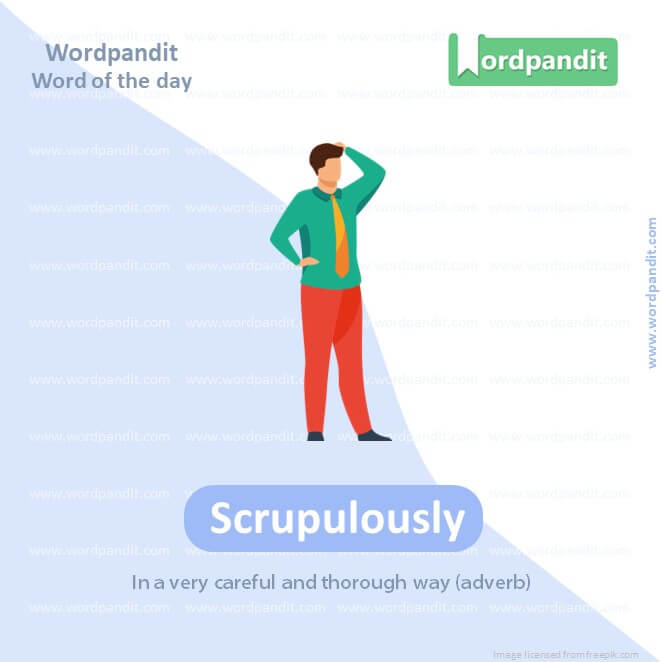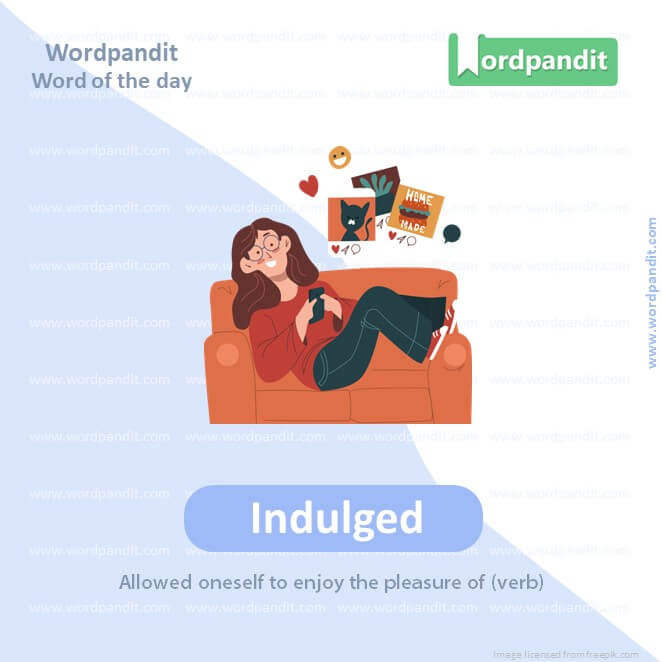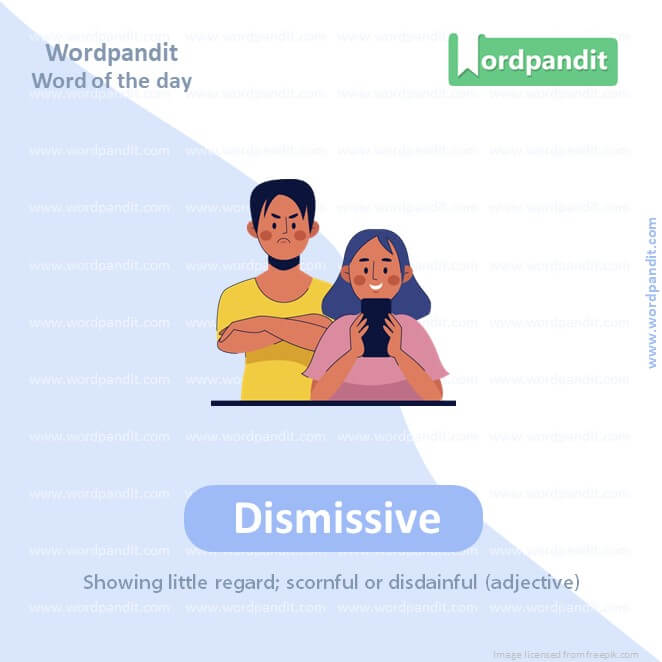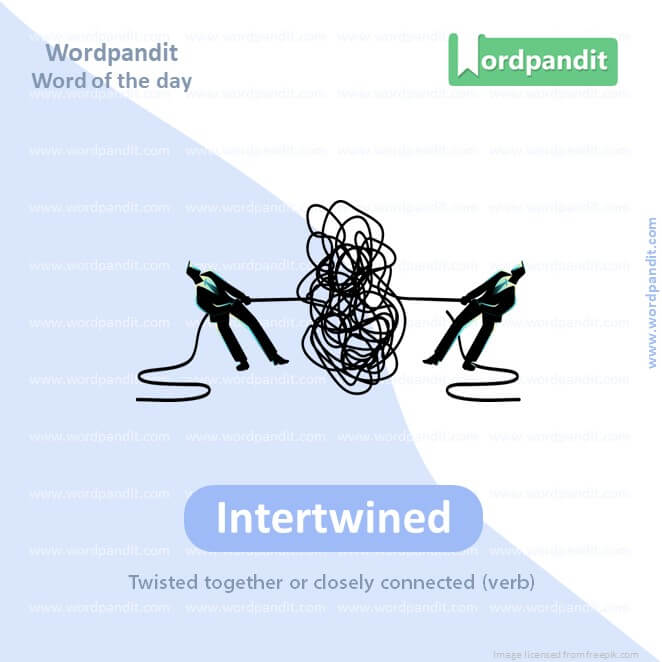Daily Vocabulary Words: List of Daily Used Words in Leading Indian Newspapers
Hi there. Welcome to this special section @ Wordpandit. Our endeavour here is straightforward: highlighting daily vocabulary words that you would come across in leading newspapers in the country. We have included the following newspapers in our selection:
• The Times of India
• The Economic Times
• Hindustan Times
• Mint
• Indian Express
We are putting in extensive work to develop your vocabulary. All you have to do is be regular with this section and check out this post daily. This is your repository of commonly used words; essentially, we are posting a list of daily used words. Hence, this has significant practical application as it teaches you words that are commonly used in leading publications mentioned above.
Visit the website daily to learn words from leading Indian newspapers.
WORD-1: Unbiased
CONTEXT: That means equal treatment, unbiased competition and impartially judged outcomes, not equal outcomes achieved by unequal treatment, biased competition and preferential judging.
SOURCE: Indian Express
EXPLANATORY PARAGRAPH: Imagine a judge in a competition who doesn’t have a favorite and treats everyone equally. This fair and neutral approach is called being “unbiased.” It means not favoring one side over another; being fair and impartial.
MEANING: Showing no prejudice for or against something; impartial (adjective).
PRONUNCIATION: uhn-BY-uhst
SYNONYMS: impartial, neutral, objective, fair, nonpartisan
USAGE EXAMPLES:
1. It’s important to provide an unbiased opinion when mediating a dispute.
2. The study strives to achieve unbiased results.
3. She listened to both arguments with an unbiased attitude.
4. Journalists should be unbiased in their reporting.
WORD-2: Modularity
CONTEXT: In employability, we must attract massive new financing for skills from employers by redesigning the system around the five design principles of learning by doing, learning while earning, learning with qualification modularity, learning with multimodal delivery, and learning with signalling value.
SOURCE: Indian Express
EXPLANATORY PARAGRAPH: Imagine building something with blocks where each block can be connected in different ways to create various structures. This ability to use parts in different combinations is called “modularity.” It means the degree to which a system’s components may be separated and recombined.
MEANING: The degree to which a system’s components may be separated and recombined, often to adapt to different needs (noun).
PRONUNCIATION: moh-juh-LAR-i-tee
SYNONYMS: configurability, flexibility, adaptability, componentization
USAGE EXAMPLES:
1. The software’s modularity allows for easy updates and customization.
2. Modularity in furniture design enables users to rearrange pieces as needed.
3. The team appreciated the modularity of the new programming framework.
4. Modularity is a key feature in sustainable product design.

WORD-3: Scrupulously
CONTEXT: The Sangh has scrupulously kept itself within the law, and in particular, has refrained from taking part in the disturbances that broke out in August 1942.”
SOURCE: Indian Express
EXPLANATORY PARAGRAPH: Imagine being extremely careful about keeping your room clean, checking every little corner to make sure it’s spotless. This very careful and thorough way of doing things is called “scrupulously.” It means being very careful and precise.
MEANING: In a very careful and thorough way (adverb).
PRONUNCIATION: SKROO-pyuh-lus-lee
SYNONYMS: meticulously, carefully, punctiliously, conscientiously, diligently
USAGE EXAMPLES:
1. He scrupulously checked each document for errors.
2. The regulations must be followed scrupulously.
3. She planned her schedule scrupulously to maximize productivity.
4. The research was conducted scrupulously to ensure accuracy.

WORD-4: Indulged
CONTEXT: It has been found that in several parts of the country, individual members of Rashtriya Swayamsevak Sangh have indulged in acts of violence involving arson, robbery, dacoity, and murder and have collected illicit arms and ammunition.”
SOURCE: Indian Express
EXPLANATORY PARAGRAPH: Imagine giving yourself a treat, like a big piece of chocolate cake after a long day of work. This action of allowing yourself to enjoy something special is called “indulging.” It means allowing oneself to enjoy a desired pleasure.
MEANING: Allowed oneself to enjoy the pleasure of (verb).
PRONUNCIATION: in-DULJD
SYNONYMS: pampered, treated, gratified, spoiled, catered to
USAGE EXAMPLES:
1. She indulged in a luxurious spa day.
2. He indulged his passion for classical music.
3. They indulged in some shopping at the boutique.
4. On vacation, they indulged themselves with fine dining every night.
WORD-5: Uttered
CONTEXT: Why has the RSS, which gives big talk about organizational discipline, not uttered a word about China grabbing land during Narendra Modi’s tenure? Or, about the BJP’s recruitment of corrupt leaders from Congress and other parties, and using bureaucrats to replace party men in the Cabinet?
SOURCE: Indian Express
EXPLANATORY PARAGRAPH: Imagine saying something out loud, whether it’s a whisper or a shout. This act of speaking or making a sound with your voice is called “uttering.” It means to speak or pronounce something.
MEANING: Spoken or expressed verbally (verb).
PRONUNCIATION: UH-turd
SYNONYMS: spoke, voiced, articulated, expressed, pronounced
USAGE EXAMPLES:
1. She uttered a few words of thanks.
2. Not a sound was uttered during the presentation.
3. He uttered the words with great emotion.
4. The threat was uttered in a moment of anger.

WORD-6: Vehemently
CONTEXT: Proportionate representation was a demand of the Muslim League before 1947, and the same was also demanded by Dr. B R Ambedkar for the Depressed Classes. (He wanted them categorized as “minorities.”)
SOURCE: Indian Express
EXPLANATORY PARAGRAPH: Imagine arguing passionately and forcefully about something you strongly believe in, like defending your favorite book against criticism. This intense and passionate way of expressing yourself is called “vehemently.” It means showing strong feeling; forceful, passionate, or intense.
MEANING: In a forceful, passionate, or intense manner (adverb).
PRONUNCIATION: VEE-uh-ment-lee
SYNONYMS: passionately, forcefully, fervently, ardently, intensely
USAGE EXAMPLES:
1. She vehemently opposed the proposal.
2. He vehemently denied the accusations.
3. The idea was vehemently criticized in the meeting.
4. They argued vehemently for their rights.

WORD-7: Dismissive
CONTEXT: The current dismissive attitude towards eligibility and merit in the quota debate, which has not been decried by Rahul and most other politicians, is deeply concerning.
SOURCE: Indian Express
EXPLANATORY PARAGRAPH: Imagine someone quickly rejecting another person’s idea without giving it much thought or consideration. This act of disregarding someone else’s ideas or feelings is called being “dismissive.” It means showing little regard; scornful or disdainful.
MEANING: Showing little regard; scornful or disdainful (adjective).
PRONUNCIATION: dis-MIS-iv
SYNONYMS: contemptuous, disdainful, scornful, derisive, disparaging
USAGE EXAMPLES:
1. His dismissive attitude made her reluctant to share more ideas.
2. She was dismissive of their concerns.
3. The reviewer’s dismissive comments hurt the author.
4. He gave a dismissive wave of his hand.
WORD-8: Paradoxical
CONTEXT: It is paradoxical that the very people who champion the cause of “Annihilation of Caste” (the title of a book by Dr. Ambedkar) are rooting for a development model that will solidify and perpetuate caste, sub-caste, and minority identities.
SOURCE: Indian Express
EXPLANATORY PARAGRAPH: Imagine a statement that seems to contradict itself but might actually have some truth to it, like “less is more.” This kind of statement is called “paradoxical.” It means seemingly absurd or self-contradictory.
MEANING: Seemingly absurd or self-contradictory (adjective).
PRONUNCIATION: par-uh-DOX-i-kuhl
SYNONYMS: contradictory, puzzling, mystifying, oxymoronic, enigmatic
USAGE EXAMPLES:
1. The paradoxical nature of Schrödinger’s cat intrigues many.
2. It’s paradoxical that the more you learn, the more you realize you don’t know.
3. Her behavior was paradoxical; it was both predictable and surprising.
4. They discussed the paradoxical outcomes of the new policy.
WORD-9: Oblivious
CONTEXT: The state as a model employer cannot be oblivious to the special concerns which arise in the case of women who are part of the workforce.
SOURCE: Indian Express
EXPLANATORY PARAGRAPH: Imagine walking through a park so lost in thought that you don’t notice a friend waving at you. This lack of awareness about what’s happening around you is called being “oblivious.” It means not being aware of or not concerned about what is happening around one.
MEANING: Not aware of or not concerned about what is happening around one (adjective).
PRONUNCIATION: uh-BLIV-ee-us
SYNONYMS: unaware, unconscious, heedless, unmindful, insensible
USAGE EXAMPLES:
1. He was oblivious to the fact that he had offended her.
2. They were oblivious to the dangers of the situation.
3. She read her book, oblivious to the noise around her.
4. Oblivious to the risks, he invested all his savings.

WORD-10: Intertwined
CONTEXT: These are intertwined outcomes of lack of opportunities in the labor market and opting for flexible employment near or at home to balance both.
SOURCE: Indian Express
EXPLANATORY PARAGRAPH: Imagine vines growing up a wall, wrapping around each other tightly. This action of twisting together is called being “intertwined.” It means twisted together or connected closely.
MEANING: Twisted together or closely connected (verb).
PRONUNCIATION: in-tur-TWYND
SYNONYMS: entwined, interwoven, interlinked, tangled, meshed
USAGE EXAMPLES:
1. Their lives became deeply intertwined after years of friendship.
2. The roots of the trees were intertwined beneath the soil.
3. The problems were so intertwined that solving one involved addressing the others.
4. Their destinies were intertwined from the start.
Vocabulary Daily Use
In the fascinating world of language learning, we often concentrate on taking giant leaps, but the real magic lies in the small steps of ‘vocabulary daily use’. These frequently used words and phrases form the backbone of practical communication and understanding. Therefore, mastering ‘vocabulary daily use’ is a crucial element in achieving language fluency.
To effectively learn ‘vocabulary daily use’, one needs to venture beyond the traditional textbook resources. The real essence of these words unveils itself in everyday exposure and interactions. Engaging with a variety of material like novels, magazines, newspapers, podcasts, films and digital content deepens the understanding of ‘vocabulary daily use’. Immersion in these contexts yield natural, everyday language that bridges the gap between the classroom and the real world.
The journey of mastering ‘vocabulary daily use’ necessitates the integration of innovative memory techniques. Flashcards and the Leitner System aid in embedding these words into your long-term memory by promoting active recall. Additionally, the use of mnemonic devices, which allow you to associate ‘vocabulary daily use’ with personal and familiar narratives, can enhance your ability to remember and recall these words.
Moreover, it’s important to remember that ‘vocabulary daily use’ isn’t just about comprehension- it’s about practice and active usage. Incorporate these words in your day-to-day communication and social interactions. This not only solidifies your understanding but also accelerates learning and internalization of ‘vocabulary daily use’.
In a nutshell, mastering ‘vocabulary daily use’ is a continual process that demands exposure, creative learning strategies and assertive practice. The commingling of these tactics brews the perfect formula that allows learners to seamlessly integrate ‘vocabulary daily use’ into their linguistic repertoire. And with that, they can navigate the nuances of language with confidence and ease.













